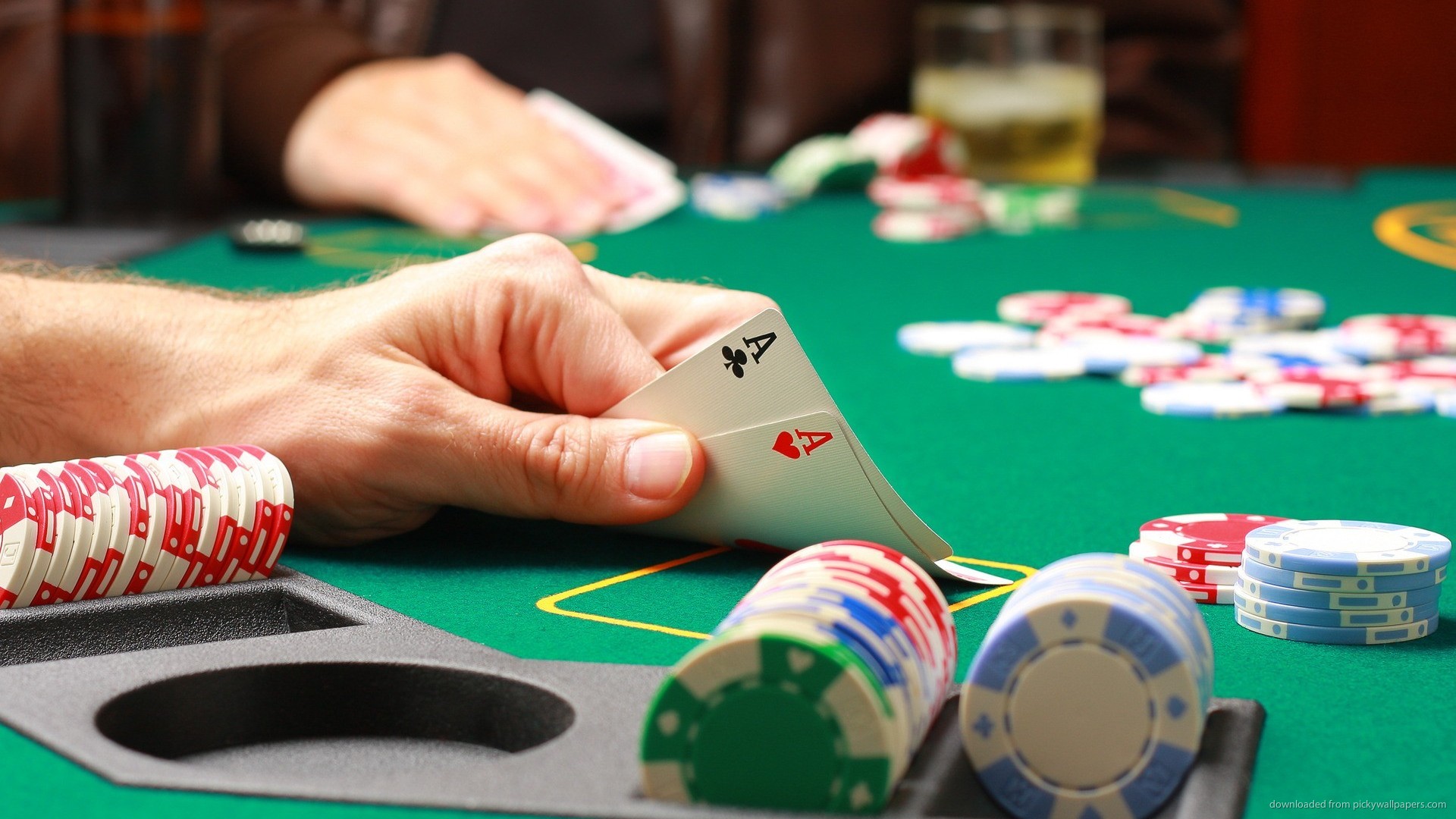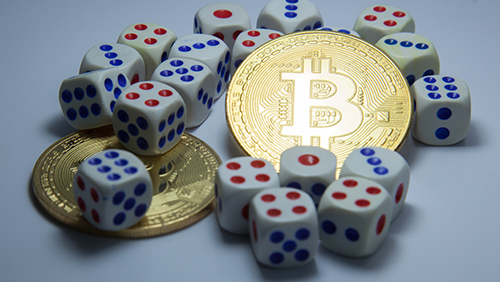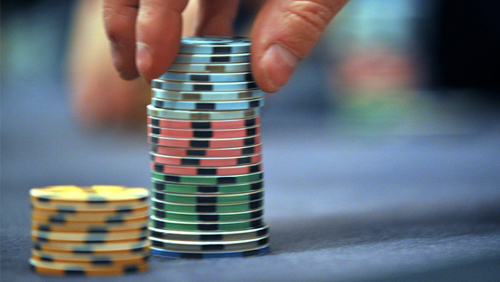While the field for the inaugural running of the $7 million Pegasus World Cup Turf Invitational Stakes (G1T) Jan. 26 at Gulfstream Park has been subject to more than a little speculation over the past months, the wait is finally over.
Monthly Archives: January 2019
McGreevy Joins Fasig-Tipton Yearling Inspection Team
Leading bloodstock agent and yearling buyer Tom McGreevy will join the Fasig-Tipton yearling inspection team this spring for the company’s 2019 selected yearling sales.
Finger Lakes to Enhance Maiden and Allowance Purses
Purses will increase 40-50% in maiden special weight and first two levels of allowance races beginning this spring.

Daniel Negreanu Shares Five Things That Make a Player ‘Good’ and ‘Bad’ for Poker
Daniel Negreanu tweeted characteristics of a player who is good and bad for poker, and some felt his comments were “arrogant” and out of line. When Kid Poker opines, however, […]
The post Daniel Negreanu Shares Five Things That Make a Player ‘Good’ and ‘Bad’ for Poker appeared first on .
Accelerate, City of Light Meet for Last Time in Pegasus
Say what you will about the overall quality of the fields for the first two editions of the Pegasus World Cup Invitational (G1), but the early season event has never been lacking for a big horse—or two.
Accelerate, City of Light One Last Time in Pegasus
Say what you will about the overall quality of the fields for the first two editions of the Pegasus World Cup Invitational (G1), but the early season event has never been lacking for a big horse—or two.
McGreevy Added to Fasig-Tipton Yearling Inspection Team
Leading bloodstock agent and yearling buyer Tom McGreevy will join the Fasig-Tipton yearling inspection team this spring for the company’s 2019 selected yearling sales.
Longer Oaklawn Park Meet Begins Jan. 25
This year the Hot Springs, Ark. track will intorduce a new schedule, dubbed “Stay Until May.” This year, the season will run three additional weeks through Saturday, May 4—Kentucky Derby Day.
The Remarkable Journey of The Player
Since his days growing up on the Bradley family’s Indian Ridge Farm near Frankfort, Ky., the charismatic chestnut colt has been beloved for his sharp mind and quirky, oddly laid-back disposition.

Regulatory clarity needed for cryptocurrency adoption in gambling
The benefits to the gambling industry of using Bitcoin SV (BSV) are many. It allows for fast, cheap and safe transactions, can build provably fair games, and fix many of the pain points of players and operators alike. Some operators have already adopted it as their payment method of choice, but the majority are still lukewarm on cryptocurrencies. For this to change, governments need to provide regulatory clarity.
As it stands right now, there are very few states that have provided very clear messaging on how they will interpret cryptocurrencies. While it is legal in most countries, the definition of what it is, how it should be taxed, and how it can be used, can be unclear. In the U.S., it’s still unknown if money transmission laws will apply to cryptocurrencies for taxation purposes, or if they can slip past updated interpretations of the Wire Act. In China, digital currencies are officially banned, but that hasn’t stopped too many people from using them.
Ultimately though, government stances matter. There will always be citizens and operators willing to find ways around the law, but the vast majority are law-fearing and will bend to what big brother tells them is right. I’ve known several former colleagues who were afraid to be involved with cryptocurrencies for fear that the government would declare them illegal.
That matters to operator adoption. As we’ve written about before, players want stability, and that applies to their payment options. As much as they might want to use BSV, operators will shy away from offering it until they know where their regulatory governments stand on the issue. It would be a major headache for them to get a player base set up with BSV and then see cryptocurrencies totally banned by their regulatory hosts shortly after.
The Remarkable Journey of The Player
Since his days growing up on the Bradley family’s Indian Ridge Farm near Frankfort, Ky., the charismatic chestnut colt known as The Player has been beloved for his sharp mind and quirky, oddly laid-back disposition.
Lawyers seek to depose lottery fraud mastermind in prison
Lawyers pursuing a class-action lawsuit on behalf of lottery customers nationwide are seeking to interview the jailed insider who allegedly rigged jackpots for himself and others for years.Insider Buzz, Legal, Scandal, Technology, Security, Computerized Drawings, Fraud, Crime, Lawsuit

Teen blackjack dealer charged with felony cheating in Washington
A teenage card dealer in Washington State has learned the hard way that the house always wins. Steven Darnell Singer, a 19-year-old blackjack dealer working at the Clearwater Resort in Suquamish, WA, has been arrested after he was allegedly caught helping players cheat the house. He is charged with first-degree cheating, which is a Class C felony. If convicted, he could be looking at as many as five years behind bars and a fine of as much as $10,000.
The casino, which is owned by a local tribe, received a tip from another dealer that he was colluding with players and launched an investigation earlier this month. According to various news sources, Singer was caught on film giving tells to players in order to indicate when they should hit or stand.
Singer began working for the casino last April. The venue is one of only a small number of Native Indian casinos in the state that allow gambling by those between 18 and 20 years of age.
Washington State law stipulates that an individual can be found guilty of cheating in the first degree when he or she cheats or “knowingly causes, aids, abets, or conspires with another to engage in cheating” and “holds a license or similar permit issued by the state of Washington to conduct, manage, or act as an employee in an authorized gambling activity.”

Meghalaya government said to be considering casino bill
Residents of Meghalaya, India might find casinos around the neighborhood in the near future. According to a report in The Shillong Times, the state’s government is considering approving legislation that would allow licensed casinos to be constructed. Given India’s love/hate relationship with gambling, any casino legislation is certainly going to meet a fair bit of resistance, and the government has already emphasized that locals would not be allowed to gamble, or even enter, in the casinos.
The news outlet asserts that the Meghalaya administration wants to have a casino in Byrnihat in Ri-Bhio, The legislation is only in its initial draft, but government officials are said to be very interested in bringing the idea to fruition and have ordered several departments to begin created a conceptual implementation of the casino landscape.
Meghalaya has to determine how to overcome the social, moral and religious arguments that could prevent any casino bill from finding approval. There will also be a number of laws that will have to be changed or amended, such as the Meghalaya Prevention of Gambling Act from 1970.
If approved, the state would adopt similar policies found in areas such as Nepal and Sikkim. No locals would be allowed – only foreign nationals and foreign tourists. However, Nepal is already working on an amendment to change the law and allow local citizens to gamble, so it is possible that Meghalaya could follow the same route once casinos are legalized.
The Book at Harrah’s Philadelphia set to open
Philly sports bettors will have a new option to get in their wagers for the Super Bowl. The Book at Harrah’s Philadelphia is set to open January 22, reports the Philadelphia Business Journal.
The new sportsbook will undergo a two-day operational test. If the Pennsylvania Gaming Control Board (PGCB) approves the run, the grand opening is expected to push through on January 24.
The new offering replaces “The Block” entertainment center, and offers 19 lounge seats, 11 high-top tables, bar seating and more than 45 large-screen TVs to follow the games on.
The license for the new sportsbook was awarded to Harrah’s by the PGCB in October. SugarHouse Casino and Rivers Casino got their sportsbooks open in December, beating Harrah’s to the punch.

Short term trade opportunity developing in Macau stocks
A short term trade looks to be developing in Macau. We’ve been falling since May and we seem to have found a plateau, a short term bottom. We may see a brief bounce from here but it is unlikely to last for more than a few months at most. Major anticipated earnings are on tap this week for Las Vegas Sands and Wynn, and Melco in early February. There may be a decent opportunity for short term traders here in these casino stocks, but longs should be prepared to cap profits at a predetermined hard target, get out quickly, and move on.
There are several reasons why we could see a tradable pop higher in Macau stocks in the short term. First, there are decent short term technicals. Volatility in the gaming sector has fallen significantly since October. The BJK gaming ETF has been pinging between support and resistance for nearly 4 months now, with strong resistance at $37 about to be tested for the fourth time. The first resistance zone at $33 was easily broken through and that led to a quick 10% rally. Break through strong resistance at $37 and the skies are clear until at least $38, with a decent chance we could see $40 if earnings come in above expectations. That’s a total potential 10% rally further up. Volume has leveled off since the beginning of the year so it seems that traders are either already positioned for earnings or are waiting for them to be released to make their moves. I would guess that the smart money is already in, waiting for earnings to bump Macau higher and sell the news. Dumb money is probably waiting for good news to buy.
The 50-day moving average was broken through to the upside on January 7th and just started turning up again. RSI has held above 50 since the beginning of the year, sign of a possible short term trend change. On the weekly charts, RSI is now approaching 50 for the first time since Macau topped in May. We are also up 4 weeks in a row for the first time since September 2017. BJK has now 18% from lows, which means that if we move 2% higher from here, we’ll start seeing those superficial “Macau is Back in a Bull Market!” headlines, sucking in more retail money. Basically, most of the major technical indicators are showing that a big short term move could be imminent, and earnings will likely be the trigger.
Besides technicals favoring a bump higher, we have the added plus of expectations already being pretty low. Sanford C. Bernstein came out with a forecast of an 8-12% dip in gross gaming revenue this month. Morningstar Asia came out with a similar forecast calling for a contraction this year. We also have another nominal face-saving crackdown out of Reuters on a $4.42 billion illicit ATM ring where a “criminal gang” was caught for the horrible crime of bringing cash machines over to Macau from the mainland so gamblers could, you know, gamble. News like this dampens sentiment and brings expectations lower than otherwise without actually making a dent in anything, any more than a drug bust makes a dent in the illegal drug industry. All it does is subsidize the lawbreakers that haven’t been caught yet, probably because they can afford higher bribes, and inch up their profit margins. Keep in mind the $4.42 billion isn’t subtracted from Macau GGR. It’s subtracted from the books of the groups that operated the ATMs before it’s even counted as Macau GGR.

Sports gambling expert: NFL could face lawsuit over blown calls
The NFL, like all major sports organizations, wants sports gamblers to pay an “integrity fee” on their wagers, with anywhere from 1-4% of the bet going to the league. It’s difficult to fathom how the NFL can assert that it deserves to receive the fee to ensure the integrity of the game when it has become quite clear that it doesn’t understand what integrity means. Case in point, this past Sunday’s NFC final matchup between the New Orleans Saints and the Los Angeles Rams.
With under two minutes left in the game, Saints receiver Tommylee Lewis receives a vicious open-field hit from behind by Rams’ cornerback Nickell Robey-Coleman. Video of the play has been shown on social media countless times, including by NFL Humor on Twitter. Take a look for yourself if you haven’t already seen it – The shot heard around the world.
There are field judges all over the place and the only way anyone could have missed the penalty is if they were blind. The lack of a yellow flag being thrown has many now saying that there had to have been some type of under-the-table deal within the league afoot – whether at the executive level or the referee level – to prevent the Saints from winning.
The lack of proper officiating – or even subpar officiating – has at least sports gambling expert predicting that the NFL is soon going to be faced with a lawsuit. In a Twitter post, Darren Roven of the Action Network asserts, “Fully expect a class action lawsuit to be filed against the NFL in the next 24 hours as a result of people claiming losses from bad call in Rams-Saints game. Don’t know how convincing the claims will be, but have no doubt they will be made.”

Extended power outage at Ponte 16 didn’t impact sales
This past Saturday, the Ponte 16 resort, in which Success Universe Group is a partner and promoter, in Macau experienced a power outage that forced the casino to halt its operations. Gamblers could only wait patiently while the power was restored and, by the time the situation was rectified, the casino had been shut down for ten full hours. The suspension will certainly cause issues with the company’s quarterly performance, but has said the situation is “manageable.”
In speaking with GGRAsia, the deputy chairman and executive director of Success Universe, Hoffman Ma Ho Man, explained that the suspension of casino activity began at 5 AM local time and that gamblers were allowed to return at 3 PM. He added that an uninterruptible power supply unit “suddenly tripped, causing a power outage at part of our resort complex” and that the hotel at the resort, Sofitel Macau, was not affected.
The executive further told GGRAsia, “This is the first time we encountered a scenario like this” and explained, “The power outage occurred in the morning when we typically have fewer clients. The peak of traffic usually starts to kick in starting at around 4pm.”
Ma added, “We are still investigating why we had such a power outage, and whether the failure of the uninterruptible power supply was a complete trigger to the problem.” The power outage also forced the server for the casino’s CCTV system to become inoperable.

Playtech BGT Sports extends Paddy Power retail self service terminals agreement
Operator continues to take retail industry’s pre-eminent SSBT product
London, 22nd January 2019 – Playtech BGT Sports, the market-leading provider of omni-channel sports betting solutions, has extended its agreement to supply Paddy Power Retail with the software for its suite of self-service betting terminals.
The new multi-year contract covers the popular operator’s retail estate throughout the United Kingdom and Ireland.
The extension of the partnership at a time of increased pressure on retail operators reflects the growing demand for Playtech BGT Sports’ SSBTs, which have bucked the trend in retail sports betting to produce double digit growth year on year.

Leisure & Resorts World can’t decide on shares redemption
Leisure & Resorts World Corp (LRW) has the option of redeeming perpetual preferred shares, in whole or in part, as they turn five years old. The shares are worth $31.2 million, but the company told the Philippine Securities and Exchange Commission last Friday that it still can’t decide whether or not to follow through with the redemption, or let them ride.
LRW issued the preferred shares to as many as 19 investors between May and September of 2013. They pay dividends indefinitely and can be used to exchange for common stock, but are non-voting and non-participating stocks.
If the company chooses not to redeem the shares at this time, it will most likely have to pay a higher dividend. LRW explained in its note, “Unless the preferred shares are redeemed by the company on the optional redemption date, the dividend rate shall be adjusted on the optional redemption date to the higher of (a) the dividend rate or (b) the prevailing Philippine Dealing System treasury-note-fixing 10-year treasury securities benchmark rate plus a spread of 300 basis points,”
It added, “The company will continue to pay dividends as soon as the proceeds of the private placement is [sic] received. Rest assured that the deferred declaration will not affect investor earnings.”